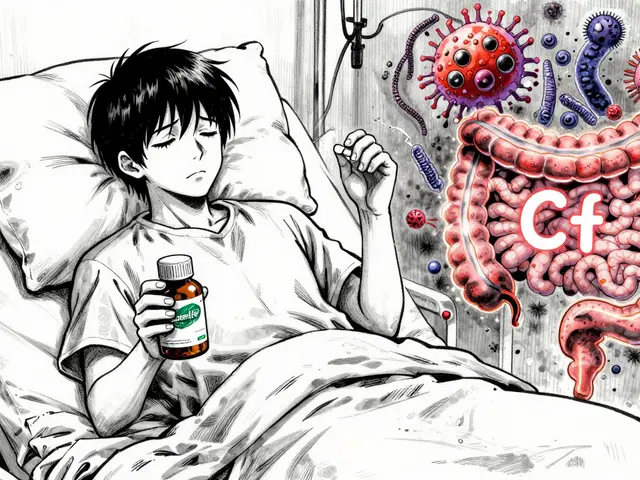Heart Failure: What You Need to Know
If your doctor mentioned "heart failure," you might think it's a death sentence. It’s not. Heart failure simply means the heart isn’t pumping blood as well as it should. That can happen for many reasons – high blood pressure, past heart attacks, or even long‑term stress on the heart.
Understanding the basics helps you stay in control. The good news is that with the right care, most people live active lives despite a weak pump.
Common Symptoms and When to Call a Doctor
The first clue is usually feeling more tired than usual. You might notice shortness of breath after climbing a few stairs or even while lying flat. Swelling in the ankles, feet, or belly (called edema) is another red flag because fluid builds up when the heart can’t move blood efficiently.
Other signs include a persistent cough that produces frothy sputum, rapid weight gain over a few days, and a feeling of heaviness in the chest. If any of these appear suddenly or get worse quickly, call your doctor right away – it could be an acute flare that needs fast treatment.
Managing Heart Failure at Home
Medication is often the backbone of therapy. Common drugs include ACE inhibitors, beta‑blockers, and diuretics. They help lower blood pressure, reduce strain on the heart, and get rid of excess fluid. Take them exactly as prescribed; missing doses can cause symptoms to flare up.
Beyond pills, lifestyle tweaks make a big difference. Cut back on salt – aim for less than 2 grams per day – because sodium makes your body hold onto water. Focus on a balanced diet rich in fruits, veggies, whole grains, and lean proteins. Even small changes, like swapping salty snacks for fresh fruit, can lower fluid retention.
Staying active is key, but start slow. A daily 20‑minute walk or gentle chair exercises keep the heart muscles moving without overexertion. Talk to your doctor about a cardiac rehab program; those are designed specifically for people with heart failure.
Keep an eye on your weight every morning. A jump of two pounds in a day or five pounds in a week often signals fluid buildup, and you should adjust diuretics under medical guidance.
Avoid alcohol and quit smoking if you haven’t already – both add stress to the heart. Managing stress through breathing exercises, meditation, or hobbies also helps keep blood pressure stable.
Finally, set up a support system. Let family members know your medication schedule and what symptoms require urgent care. Regular check‑ins with your healthcare team, including lab tests for kidney function and electrolytes, ensure the treatment stays on track.
Heart failure can feel overwhelming, but with these practical steps you can keep symptoms in check and maintain a good quality of life. Stay informed, follow your plan, and don’t hesitate to reach out when something feels off – your heart will thank you for it.
Dapagliflozin: FAQ, Guide, and Expert Answers for Diabetes and Heart Health
Got questions about dapagliflozin? This in-depth article covers what to expect, the science behind dapagliflozin, side effects, tips for managing diabetes and heart issues, and quotes from medical experts. Unlock practical advice and up-to-date answers for everyday concerns about dapagliflozin treatment.
Apixaban and Heart Failure: What Patients Should Know
As a heart failure patient, it's essential to be aware of the medications we take, such as Apixaban. Apixaban is an anticoagulant that helps prevent blood clots, which can be especially beneficial for those with heart failure. This medication can reduce the risk of stroke and other heart-related complications. However, it's crucial to discuss with our doctors if Apixaban is suitable for our specific condition, as it may interact with other medications or cause side effects. Always remember, being well-informed about our treatment options helps us take charge of our heart health.
About
Medications, Health and Wellness
Latest Posts

The Connection Between Functional Dyspepsia and Acid Reflux
By Orion Kingsworth Jul 12, 2023

NSAID Sensitivity and Asthma: What Patients Should Watch
By Orion Kingsworth Nov 28, 2025

How to make flying more comfortable for motion sickness sufferers
By Orion Kingsworth May 12, 2023


